Interview: Yannis Kokkos on "Guillaume Tell"
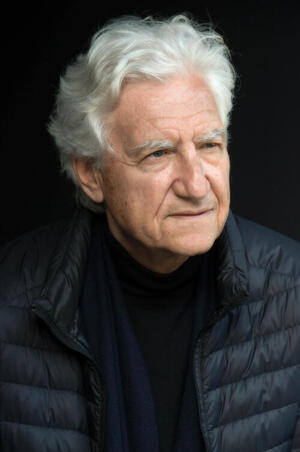 ―You first directed at the Opera Palace of the New National Theatre Tokyo (NNTT) in the double bill of Le Rossignol/Iolanta in April 2021, which was done remotely from Paris.
―You first directed at the Opera Palace of the New National Theatre Tokyo (NNTT) in the double bill of Le Rossignol/Iolanta in April 2021, which was done remotely from Paris.
It was a really special experience. It was a pity that I couldn't go to Tokyo, but I was in France at the time of one of several lockdowns, so I was able to concentrate on the work for more than a month. It was thanks to the enthusiasm of everyone at the NNTT that I was able to meet this very difficult challenge. I prepared for the rehearsals by drawing up a storyboard of the entire production in advance, exchanging textual information and holding meetings with everyone. Then, I would check the meticulously arranged rehearsals on the screen, discuss with the staff, ask Yasuhiro Miura, the associate director, to communicate to the performers what needs improving, and sometimes talk directly with the singers via the screen, so it was as if we were all at the New National Theatre Tokyo. It was all a unique experience, and especially the lighting and choreography were difficult to implement remotely, but we were able to realise the staging as we intended. We were all very moved to be able to greet the audience at the curtain call on the opening night via the onstage monitor. It is a truly cherished memory, and we are so grateful to everyone who worked so hard on the production.
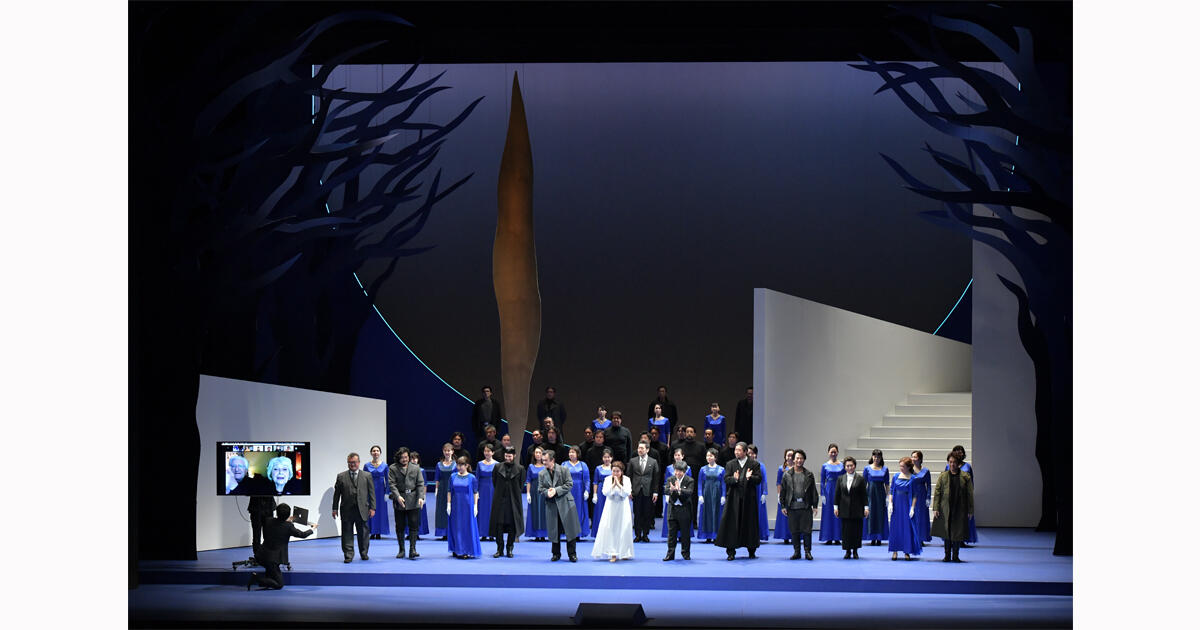
Curtain Call from Iolanta(2021)
―This autumn, you will come to Japan and direct Guillaume Tell in person. The production will be the Japanese premiere of the original French version.
I feel a great responsibility when I think about how I should approach this important occasion of the Japanese premiere of Guillaume Tell so that the public will understand and love the work.
Guillaume Tell was Rossini's last opera, and it is a unique work that reflects the major changes in his conception and composition. Rossini was very sensitive to the prevailing mood of the times and was aware of the changing tastes of his audiences for comedy opera, for instance. This was mainly because Romanticism was beginning to enter every field of art. Rossini decided that he had to move forward musically and embrace Romanticism, the spirit of the age, and consequently composed Guillaume Tell. It was a work inspired by Romanticism and The French Revolution, which were not seen in his earlier works. The choice of Schiller for the text was also a sign that Rossini had entered a new world.
Guillaume Tell is also a work of great musical importance, opening the door to the operas of the future, linking it to the operas of Verdi and others. One of the most interesting aspects is Rossini's attempt to make the music more modern, to transcend himself. At the same time, he also embraces the spirit of the times, which I think is very Rossini.
―Guillaume Tell is set in Switzerland, and the story is about the Swiss people's resistance to Austrian rule, isn't it?
The story takes place in medieval Switzerland, but this is an "imaginary Switzerland", or a kind of convention. Nature plays an important role in the work, but on this occasion, I thought an abstract setting would be better, so I chose an outdoor space with a bit of fantasy. The theme of the opera is oppression and resistance to oppression, and the conflict between the violent oppressor and the people longing for freedom is depicted. In general Rossini was not interested in politics, but he must have had the French Revolution in mind when setting this story of resistance forces defeating the oppressor. What is interesting is that the revolution does not appear immediately, but the characters gradually join forces in implementing the revolution as the story unfolds. This is not the case in Schiller's original text, where the entire populace is involved in this resistance movement. In this way, the story of the opera reflects the spirit of Rossini.
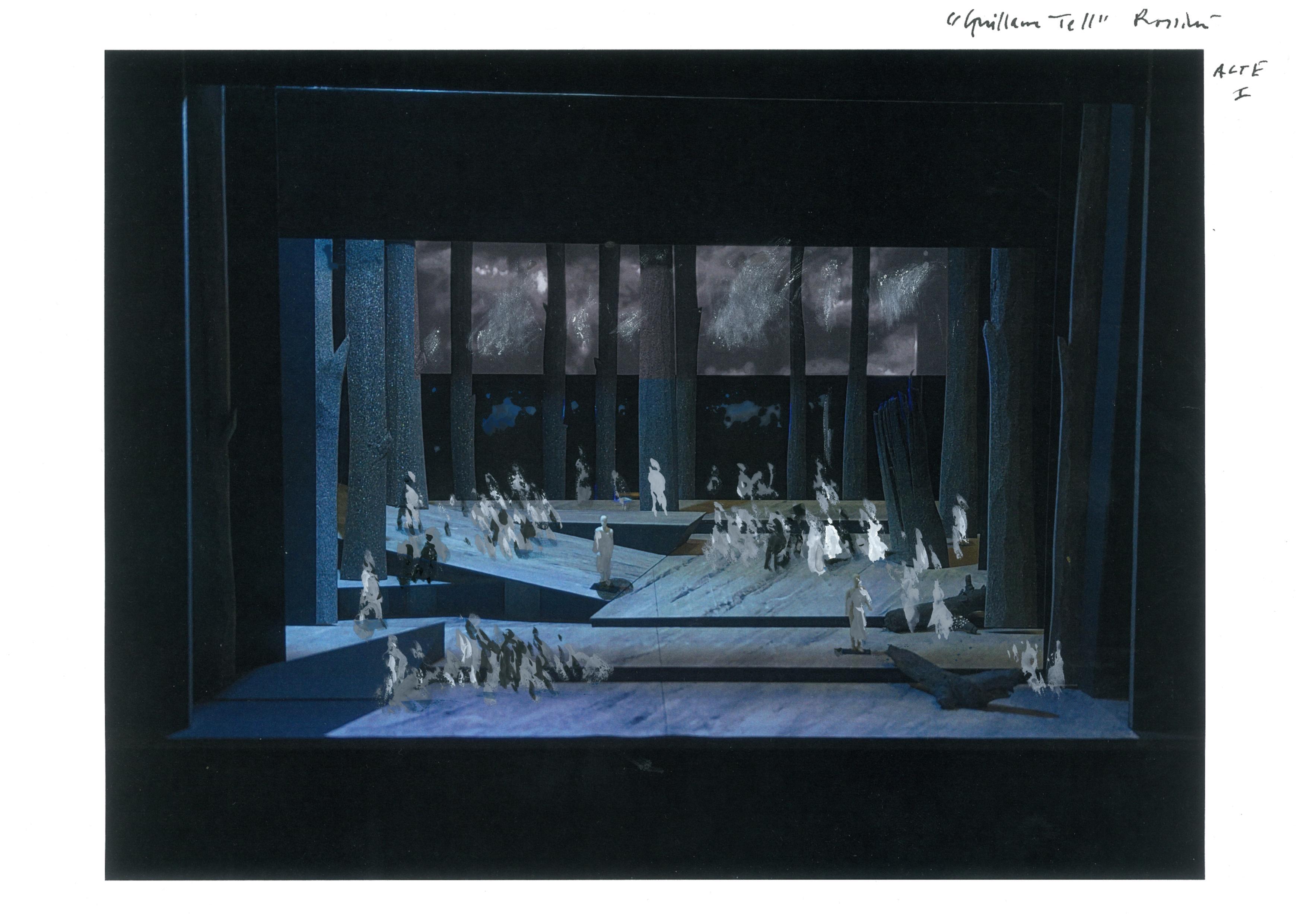
Stage design of Gulliaume Tell [Act 1]
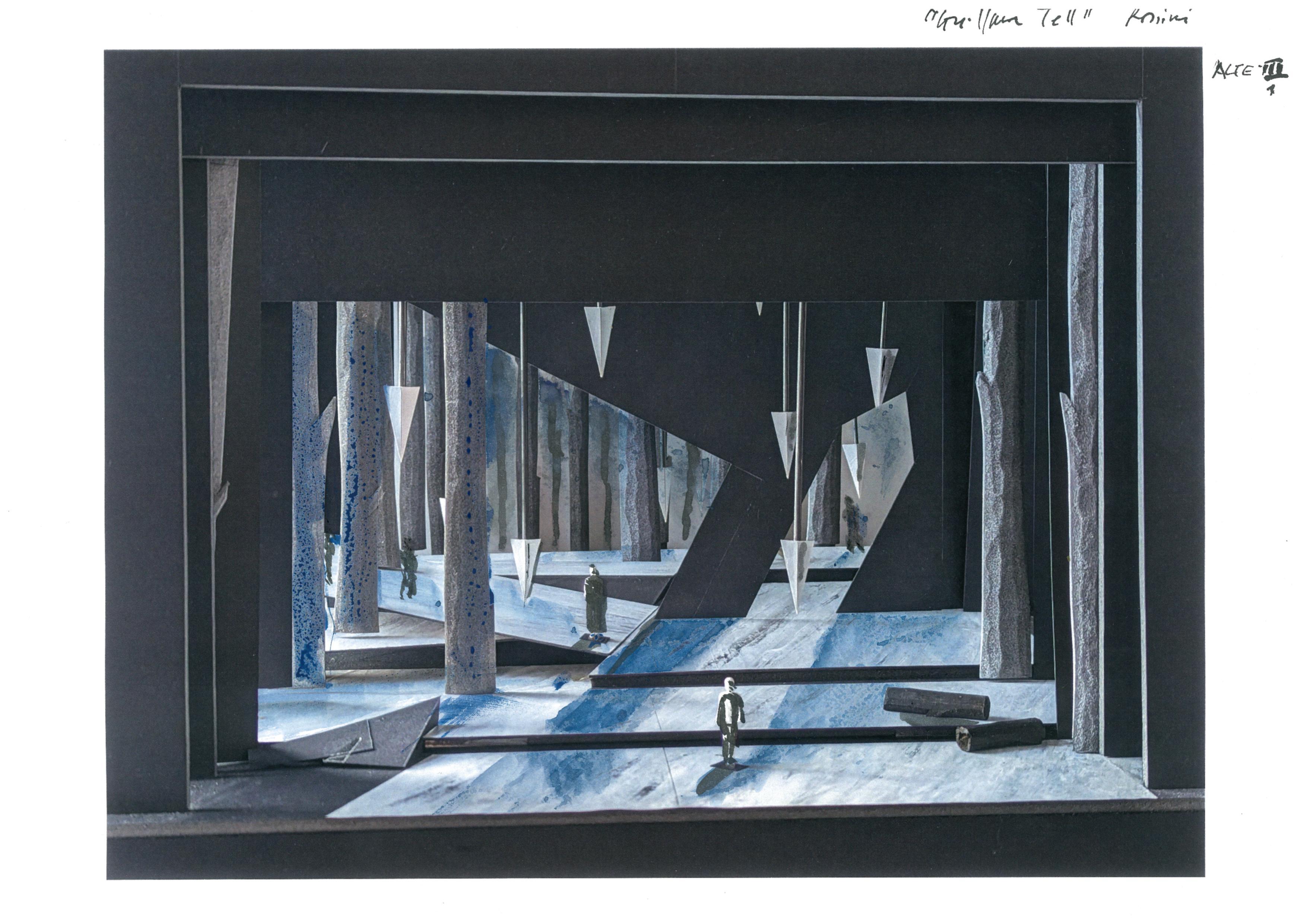
Stage design of Gulliaume Tell [Act 3]
―From the viewpoint of the director, how do you see Guillaume Tell ?
It's a very difficult work to direct. I could say that it is the most difficult opera I've worked on. It is a powerful story, and the characters are very strong. There is Guillaume Tell, who is pure hearted in his beliefs, and Gesler, who embodies the absolute oppressor, and the characters around them are very well thought out and portrayed. Mathilde, for example, is placed in a complex situation of having to choose between betrayal or loyalty, and between patriotism or love that is against it. Adding to these stories is the ballet, and the placing of this ballet was problematic. Rossini incorporated the ballet in response to audience demand, but I didn't want to put it in just because it was the convention of the day. I'm working with the same team as Le Rossignol/Iolanta, so the choreographer is by Natalie van Parys, and we both agree that the ballet shouldn't appear as an interlude, but as an extension of the story. We want to get rid of the "convention" that diminishes the quality of the work, so we will integrate the ballet scenes into the opera itself. There will always be a rationale for the dance scenes.
―What is the thing you value most when you direct?
I always try to regard any work as contemporary. This does not mean that one should place it in a superficially modern setting. Every work contains ideas that were in line with the philosophy and social structure of the time of its premiere, so we must respect that yet bring it across the ages to the present day. I believe what unfolds on stage in front of us is the story itself, and it should be something that the audiences of today can understand in a natural way.
Oppression and resistance, which are the themes of Guillaume Tell, are unfortunately problems that exist in every age. However, I don't think it should be directly linked to the wars or occupations that we are currently experiencing. We want to approach it as a history of the oppressor and the oppressed that repeats itself through the ages. I want to aim for a production that will serve as a bridge between the past and the present.
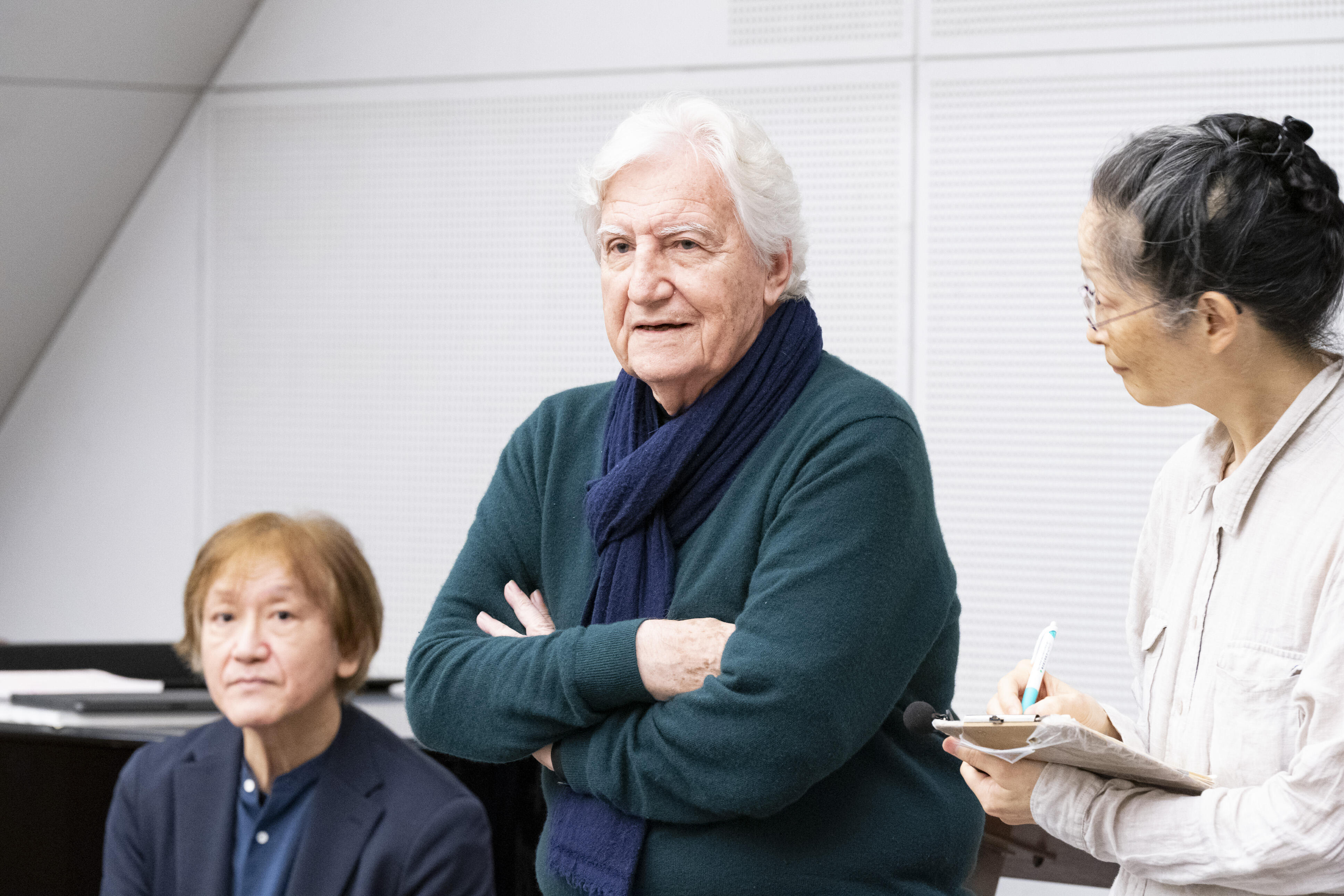
Explaining the concept to the cast
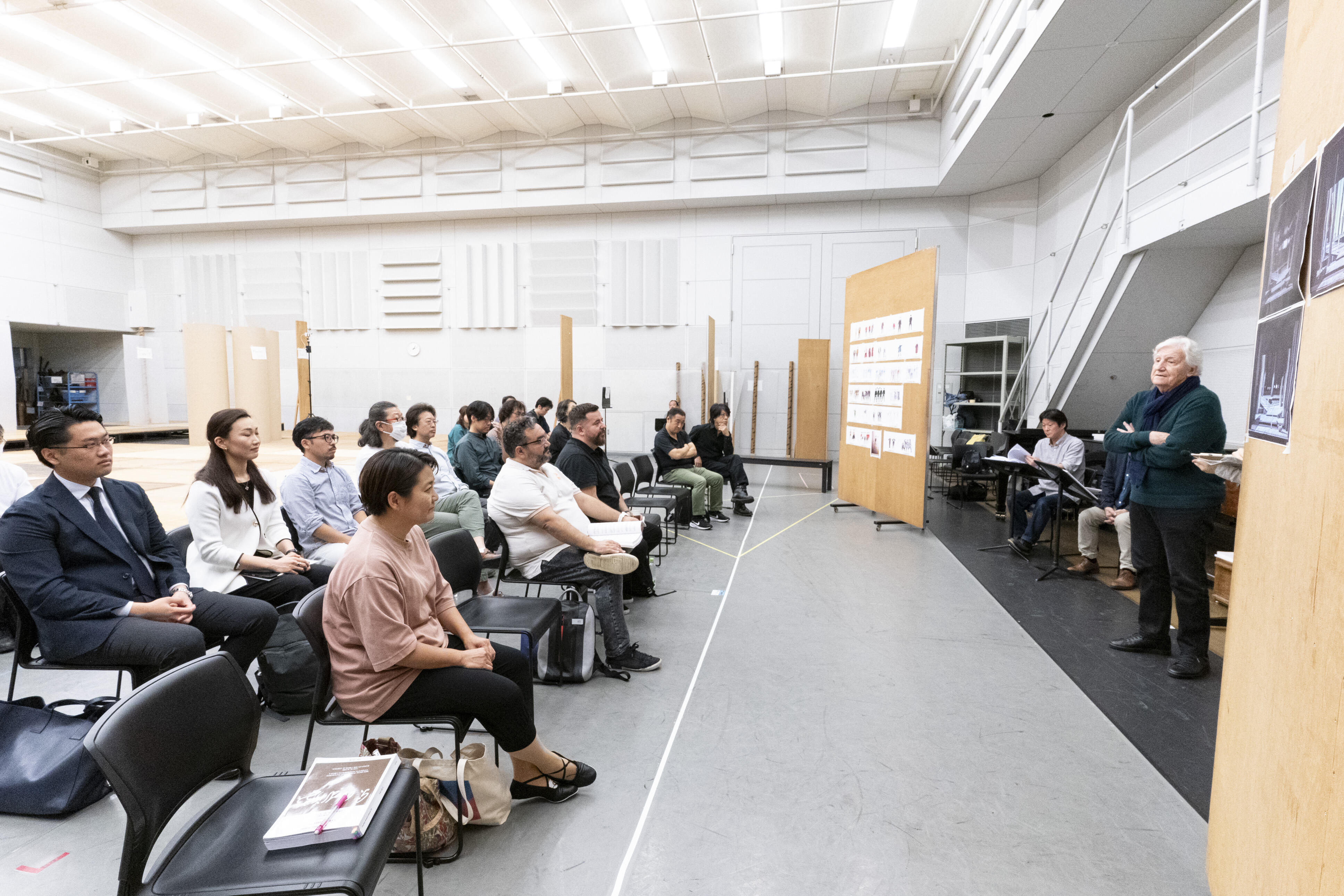
Explaining the concept to the cast
―Guillaume Tell will be conducted by Artistic Director Kazushi Ono.
Working with Maestro Ono is a really important opportunity for me. Previously we have worked together in Europe, notably in Wagner's Tristan and Isolde at la Monaie in Brussels and Henze's The Bassarids , and it has been a great collaboration and a great learning experience. In a way, I think it was courageous of Maestro Ono to choose Guillaume Tell for the season lineup. The music is incomparably beautiful, but at the same time we are presenting a transitional period in the history of music.
―Do you have a message for the Japanese audience who are looking forward to seeing Guillaume Tell?
To have this opportunity to introduce Guillaume Tell to the Japanese audience is very significant. We hope that they will be moved by this tale of rebellion in an imaginary medieval Switzerland. It's also a work where you can experience the music of the transitional period when Western art was moving into the modern age, so we will do our best to give you the sense of the work's appeal.
The entire production team is delighted to be working with everyone at the New National Theatre Tokyo once again. We look forward to working face-to-face, in the true sense of the word, to create this work together.
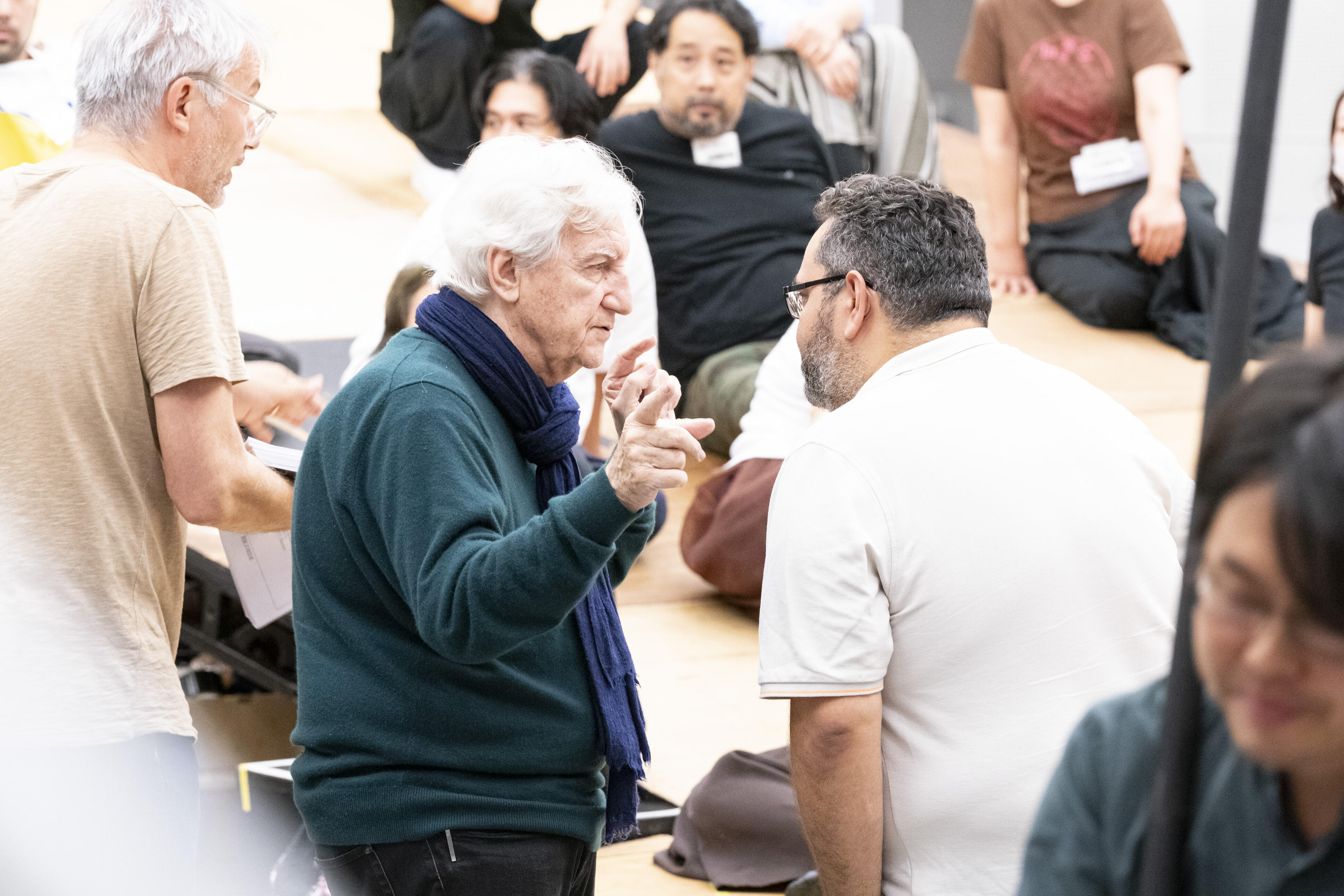
Rehearsal for Guillaume Tell
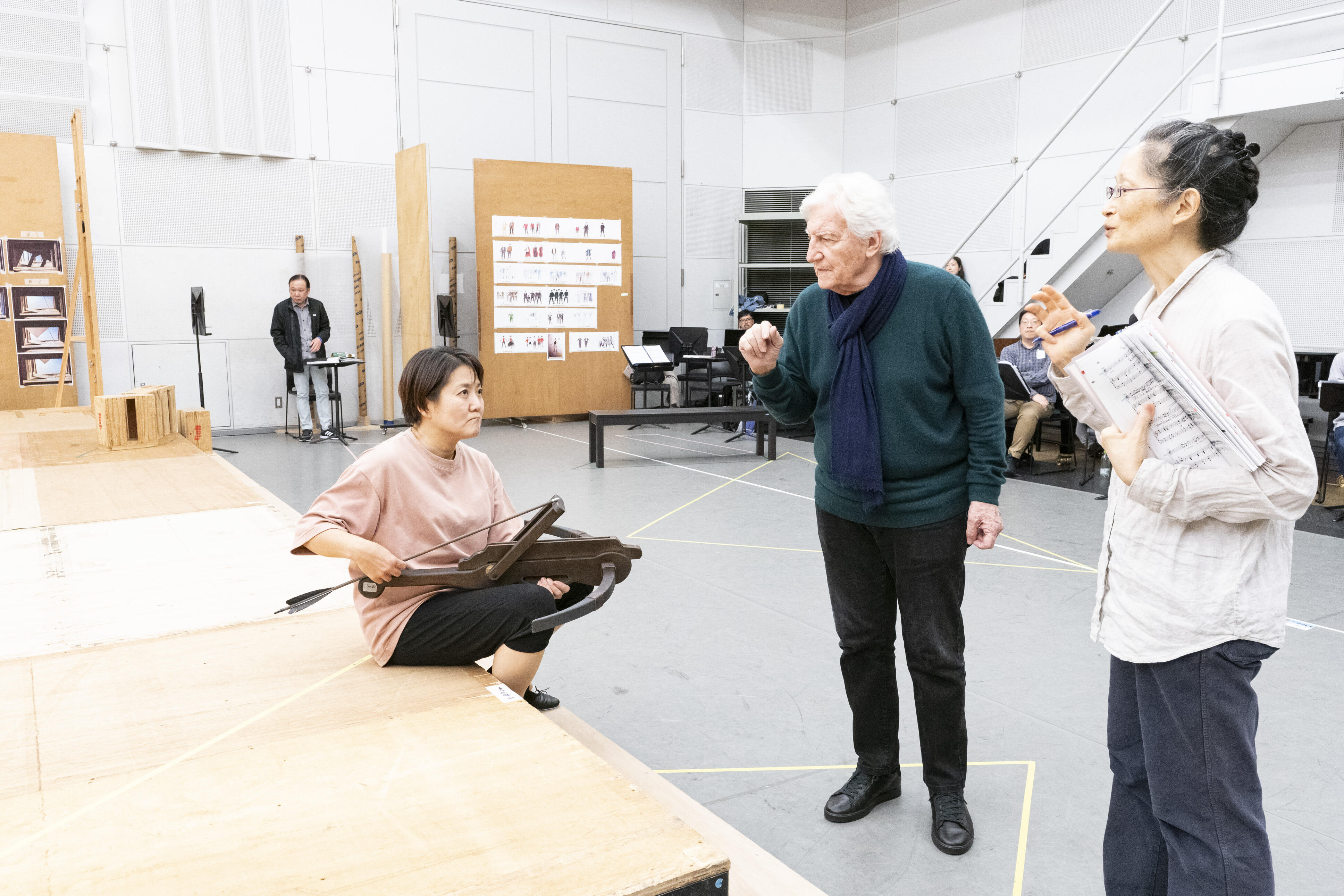
Rehearsal for Guillaume Tell
Opera ❝Guillaume Tell❞
On Stage 20, 23, 26, 28, 30 November.
See here for more information.

